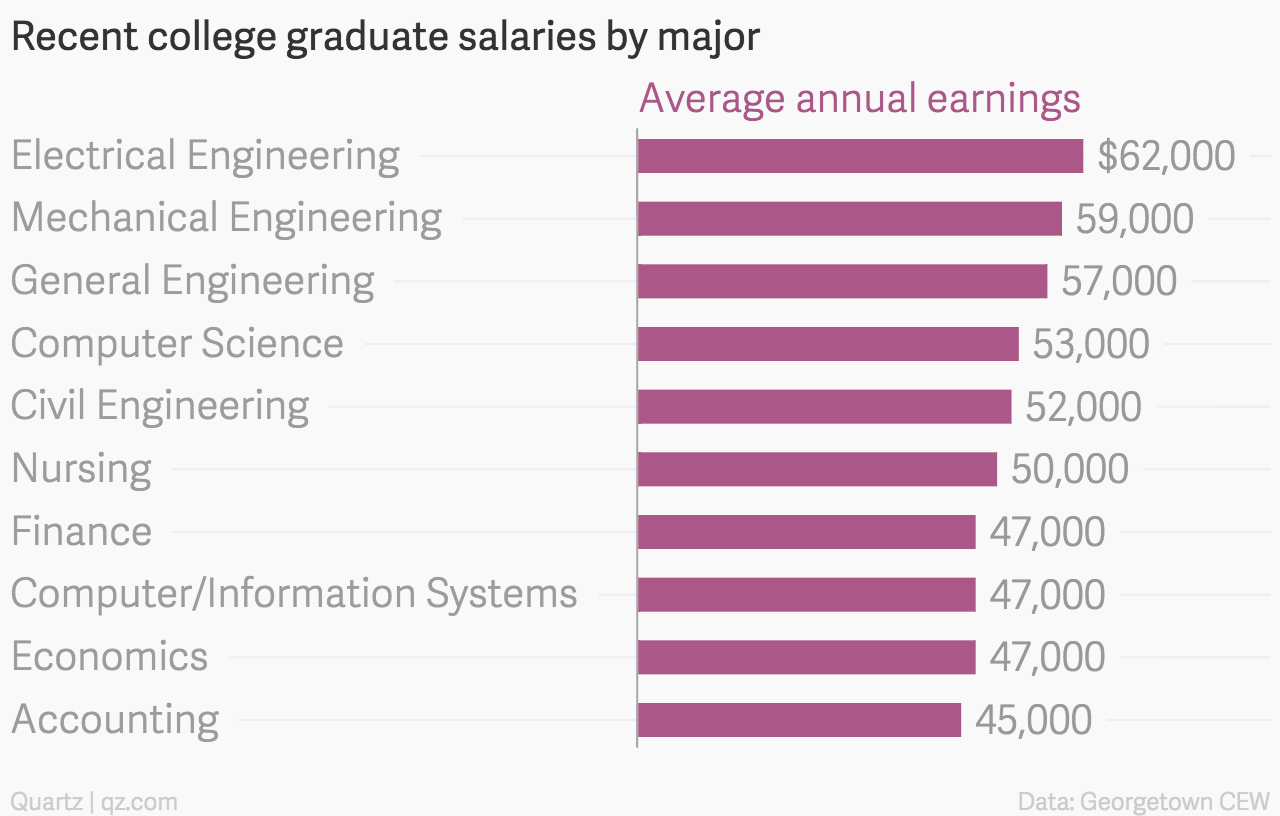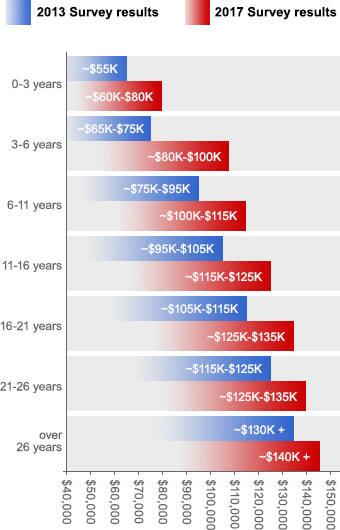Engineering offers my friends were given ranged from 55-70k all-in... the average engineer won’t be a petroleum engineer from Exxon cracking 100k right out of grad. Same with computer science - FAANG software engineers represent the top 1%.
Still, by 5-10 years out, you’re basically at parity with what a pharmacist will take home. With more upside, in a growing field...
@OP, instead of switching fields entirely into PA (which = more debt and more opportunity cost into a field that’s projected to also reach oversupply), have you thought about using your degree and experience for related fields? Might be a better way to go if you find a path forward, unless you have a calling for medicine.
Accountants are being automated out through software, the accountants you see now are much more productive and intelligent than the ones you saw even in the 1990s. Engineers (particularly the high-end petroleum and electrical engineers) get shafted when they are in their 50s, and Ma Bell/Intel/GE Westinghouse did it to electrical, MD, Boeing, and Hughes did it to their aerospace, and let's not get started on Royal Dutch Shell and Exxon on the petroleum engineers. And disenfranchisement at 50 unless you are in management. Same with your line of work unless you make full/equity partner (which is something like ~20% at best in firms, not impossible, but not easily achievable). You know the odds, and you are taking the risks because of your confidence of being a winner, but it's a risk that you have to endure for the big bucks now and tomorrow in a way that most don't have to sweat. Well-paid engineers career earnings are not the same as healthcare as even when they get paid more, their career stability is far less certain than health care. The fact of the matter is that the young who need the money more, are in better condition, and are not as resistant to the management games are the fodder that feeds the corporate engine.
Pharmacy used to be one of the professions that you could grow old and useless in and still have a steady, paying job. To the OP's concern, career stability and longevity is a real concern nowadays. I would argue that nothing is really safe.
1%??? FAANMG employed 25k-150k people for each companies. They aren't the only players in Silicon Valley.
Parity after 5 years???
Levels.fyi - Compare career levels across companies
Nope... not even close...
Let me rephrase this is a way that's analogous to pharmacy. I get this from IT workers from those companies from time to time: "Why the hell does those your trainee dumbf#*ks make so little working for CVS, when pharmacist owners at median make $350k? Surely, you could use your money, plunk it down in SoCal pharmacy, and make a mint like all those guys who are running those pill mills outside USC?"
I'll answer for you, because being a pharmacy owner and being a pharmacist, while they are two jobs within pharmacy, have neither the same background, the same daily tasks, or the same risk profiles. You slave away at that borderline $150k job year after year with complaints, because you can. You're not invested in CVS at all, you can turn your back on them anytime, and honestly, you use your time more productively to hustle the market. That's not possible as a pharmacy owner. But if you average out the ENTIRE profession for what we do including industry, there are enough extremely well-paid pharmacists in NJ, CA, NC, and NY that even the CVS corporate cattle make less than the median by comparison even in California. Because if you put in the number of people who are technically pharmacists who work those fields which are really not pharmacy per se, then the average should be around $250-275k due to the number of industry and owners who make above that amount but do not practice.
So when you talk about IT, there's a real difference between the astronomical amounts that Google and Facebook pay, to the high amounts Microsoft, Cisco, Oracle, and Amazon pay, to the normal amounts that almost everyone else pays. Among the CS and CSE majors, the probability of you being a Google engineer is about the same as being an Associate Director at a major PhRMA concern or a small-time owner. Again, not impossible, but not normal either. There is an overaggregation bias here where too many groups are piled into one, and while that can be true, it lacks perspective on the normal reality. The normal IT worker makes between $70-150k depending on their role. Development pays more, but it is proportionately more risky to enter and more unstable to retain those earnings. In general, any job that you are paid well even in comparison to the two-person median, those jobs have additional concerns that do not plague the more precarious ones.
And sure, I know these guys and gals too. My last PhD student went to work for Renaissance on those models, and sure, I can claim that I know my average PhD makes more in a year than I will in a lifetime (quite literally, it's very humbling), but that's a one-person Simpson's paradox issue. I can also say that every single one of my PhD graduates make more than a CVS pharmacist from Day 1, and that the usual start to their salary lines is roughly $200k before vesting options or bonuses for a 50 hour workweek, and that would be a better description of their fate.
The reason I keep writing against these utopia job descriptions is that the grass really is not greener anywhere else. Everything does have its risks and rewards including medicine. You really can't make a bad decision (it's not like you're going into salt mining after pharmacy), but the decisions are always going to imply some level of explicit and implicit costs and no one really can accurately predict the future. You should find something to do that is at least short-term sustainable and that you are satisfied to work in given the conditions.

